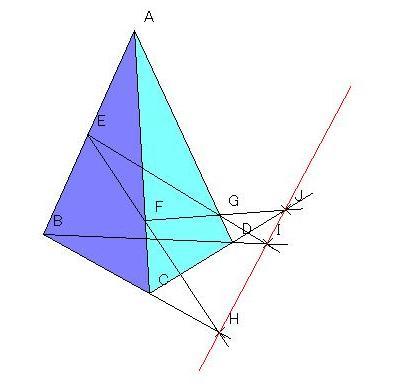結果
| 問題 | No.1410 A lot of Bit Operations |
| コンテスト | |
| ユーザー |
 convexineq convexineq
|
| 提出日時 | 2021-02-27 08:06:30 |
| 言語 | PyPy3 (7.3.17) |
| 結果 |
WA
|
| 実行時間 | - |
| コード長 | 3,276 bytes |
| 記録 | |
| コンパイル時間 | 307 ms |
| コンパイル使用メモリ | 82,176 KB |
| 実行使用メモリ | 77,312 KB |
| 最終ジャッジ日時 | 2024-10-02 17:05:17 |
| 合計ジャッジ時間 | 9,233 ms |
|
ジャッジサーバーID (参考情報) |
judge5 / judge2 |
(要ログイン)
| ファイルパターン | 結果 |
|---|---|
| sample | AC * 2 |
| other | AC * 11 WA * 33 |
ソースコード
def extgcd(x,y):
if y==0: return 1,0
r0,r1,s0,s1 = x,y,1,0
while r1 != 0:
r0,r1, s0,s1 = r1,r0%r1, s1,s0-r0//r1*s1
return s0,(r0-s0*x)//y
def modinv(a,MOD):
x,y = extgcd(a,MOD)
return x%MOD
def divmod_poly(f,g,MOD): #MODは素数とする
assert g != [] and g != [0]
ainv = modinv(g[-1],MOD)
df,dg = len(f),len(g)
if df < dg: return [0], f[:]
gg = [gi*ainv%MOD for gi in g]
r = f[:]
q = [0]*(df-dg+1)
for i in range(df-dg,-1,-1):
q[i] = c = r[-1]
if c:
for j in range(dg-1,-1,-1):
r[j+i] -= c*gg[j]
r[j+i] %= MOD
r.pop()
for i in range(df-dg+1): # g を monic にする
q[i] = q[i]*ainv%MOD
while r and r[-1]==0: r.pop()
if not r: r = [0]
return q,r
def mul_poly(f,g,MOD):
df,dg = len(f),len(g)
res = [0]*(df+dg-1)
for i in range(df):
for j in range(dg):
res[i+j] += f[i]*g[j]
res[i+j] %= MOD
return res
def sub_poly(f,g,MOD):
df,dg = len(f),len(g)
m = max(df,dg)
res = f[:]+[0]*(m-df)
for i in range(m):
if i < dg:
res[i] -= g[i]
if res[i] < 0: res[i] += MOD
return res
def bm(x,MOD):
assert len(x)%2==0
L = len(x)//2
x.reverse()
while x and x[-1]==0: x.pop()
if not x: return [0] # all zero の場合
r0,r1,s0,s1 = x,[0]*(2*L-1)+[1],[1],[0]
while len(s1) <= L and r1 != [0]:
q,r = divmod_poly(r0,r1,MOD)
#print(r0,r1,q,r)
#assert mul_poly(q,r1,MOD)==sub_poly(r0,r,MOD)
r0,r1 = r1,r
s0,s1 = s1, sub_poly(s0,mul_poly(q,s1,MOD),MOD)
#print(q,r0,r1,s0,s1)
while s0 and s0[-1]==0: s0.pop()
ainv = modinv(s0[-1],MOD)
return [si*ainv%MOD for si in s0]
def f(n,op,I):
ans = 0
for p in range(1<<n):
for q in range(1<<n):
L = 0
for i in range(n):
L |= op(p>>i&1,q>>i&1,I)<<i
R = (1<<n)-1-L
assert L >= 0 and R >= 0
#print(L,R,1<<n)
ans += max(L,R) - min(L,R) + 1
return ans%MOD
def fps_nth_term(f,g,N):
assert g[0] != 0
while N:
h = g[:]
for i in range(1,len(g),2):
h[i] = -h[i]
f = polymul(f,h)[N%2:N+1:2]
g = polymul(g,h)[:N+1:2]
N //= 2
return f[0]*pow(g[0],MOD-2,MOD)%MOD
# a[0],...,a[L-2] とL-1次特性多項式 g が与えられているL項間漸化式の第N項
def rec_nth_term(a,g,N):
L = len(g)
assert len(a) == L-1
f = polymul(a,g)[:L-1]
return fps_nth_term(f,g,N)
MOD = 10**9+7
def polymul(x,y):return mul_poly(x,y,MOD)
n = int(input())
k = input()
ans = 0
for i in range(8):
if k[i] == "-": continue
def op(x,y,i):
if x==0 and y==0: return i>>0&1
if x==0 and y: return i>>1&1
if x and y==0: return i>>2&1
return 0
lst = [f(k,op,1) for k in range(1,9)]
if n==0:
ans += lst[0]
continue
#print(lst)
a = bm(lst[:],MOD)[::-1]
#for i in range(10):
# x = rec_nth_term(lst[:len(a)-1],a,i)
# print(lst,a,x)
#for a,b in zip(lst,lst[1:]):
# print(b*12-a*32)
ans += rec_nth_term(lst[:len(a)-1],a,n-1)
print(ans%MOD)
